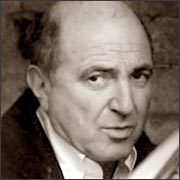Security services 'foil plot to kill Berezovsky at the London
Hilton'
by Richard Beeston, Diplomatic Editor
|

Boris Berezovsky
|
Boris Berezovsky fled Britain three weeks ago on the advice of
Scotland Yard, amid reports that he was the target of an assassination
attempt by a suspected Russian hitman. The exiled tycoon and fierce
critic of President Putin of Russia told The Times last night that he
had been warned that it was not safe for him to remain in London, where
he had been living since being granted asylum in Britain.
"I was informed by Scotland Yard that my life was in danger and they
recommended that I leave the country," he said. "I left three weeks ago
but have now returned."
Mr Berezovsky, a billionaire businessman who has an office in Mayfair
and lives at a heavily guarded mansion in Surrey, never moves without a
phalanx of bodyguards. He has been the subject of assassination attempts
in Russia but this is the first time that he has been targeted in
London.
Reports last night claimed that an assassin was captured at the
Hilton Hotel in Park Lane, West London, moments before he planned to
kill Mr Berezovsky, whose offices are a short distance away. Scotland
Yard said last night that it was not prepared to discuss the matter.
The revelation could help to explain why the new Government of Gordon
Brown decided to take such tough action against the Kremlin this week.
On Monday David Miliband, the Foreign Secretary, ordered four Russian
diplomats, believed to be members of the Russian security services, to
leave Britain within ten days. He also announced measures to tighten
visas for Russian officials visiting Britain.
The reason given for the action was Russia's failure to extradite
Andrei Lugovoy, a former Russian intelligence officer, who has been
named as the prime suspect in the murder of Alexander Litvinenko. Mr
Litvinenko, an associate of Mr Berezovsky's, died an agonising death in
November last year when he was poisoned with the radioactive isotope
polonium-210. Detectives believe that Mr Lugovoy administered the poison
in a pot of tea he served Mr Litvinenko when they met at the Millennium
Hotel in Mayfair on November 1.
At the time, Russian opposition figures in London suspected that the
murder was intended to send a message to Mr Berezovsky, who has openly
called for the removal of President Putin and his regime by peaceful
means, or by force if necessary.
The former Kremlin aide and Russian oligarch made billions of pounds
in the 1990s when he ran an airline, a car dealership and Russia's main
television channel. He briefly served as a Kremlin aide during the
presidency of Boris Yeltsin.
But he fell out with Mr Putin and fled the country. The Kremlin has
sought his extradition back to Russia to face various criminal charges
but he was granted asylum to remain in Britain by David Blunkett, the
former Home Secretary.
Since arriving in Britain, Mr Berezovsky has been a political
irritant to the Kremlin. He lived in the same North London street as
Litvinenko, as well as Akhmed Zakayev, a Chechen dissident also wanted
in Russia.
He has used his wealth and political contacts to fund the opposition
against Mr Putin, who is due to step down as head of state after next
year's presidential elections. In the politically charged atmosphere
ahead of the changeover of power there are fears that figures in the
Kremlin will seek to silence or eliminate any opposition figures
threatening the existing leadership.
Mr Berezovsky said last night he was confident he was safe in Britain
under the protection of the police. Appearing on Newsnight on BBC One,
he said that he was in no doubt that the threats to his life came from
the Russian Government. He said he was "100 per cent sure" that Mr Putin
was behind Mr Litvinenko's murder.
Relations between London and Moscow are likely to be tense for some
time. Yesterday Yuri Fedotov, the Russian Ambassador to London, gave a
warning that Moscow would retaliate against the expulsion of the four
diplomats from his embassy.
While tit-for-tat expulsions would not seriously damage bilateral
relations, Britain is concerned the Kremlin could harm the lucrative
British commercial interests in Russia.
The Times, UK
|
